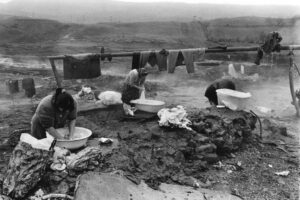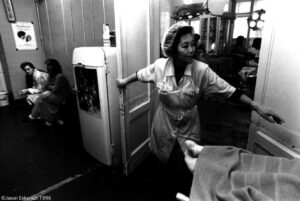As dusk falls on the Chechen capital, Grozny, in southern Russia, the sounds of dogs barking, neighbors chatting, and the theme song to a popular Brazilian soap opera mix with the sounds of automatic gunfire and distant explosions. But the conversations continue, soup is served, and everyone stays glued to the TV.
This conflict has not existed only for the last 18 months, but for more than 200 years. Long ago when Russians tried to expand their territory into the Caucasus, they too retreated at nightfall into their fortress for safety, frightened by attacks from Chechan rebels. The Russian soldiers would emerge in daylight to control Grozny. Today, just outside the city, dirty, underfed, and drunk Russian soldiers take bribes and offer to sell weapons and even tanks to passersby and to Chechen rebels.
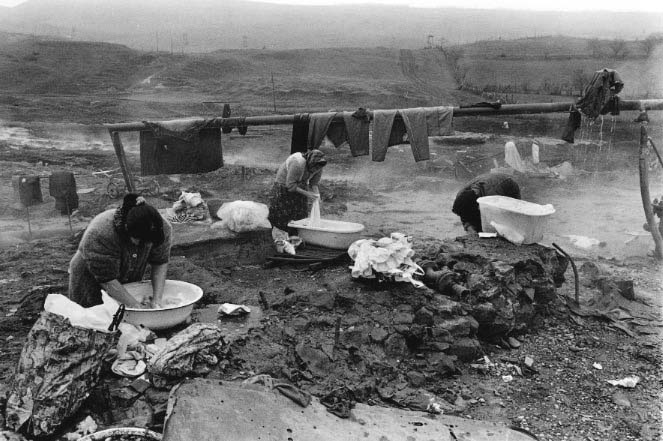
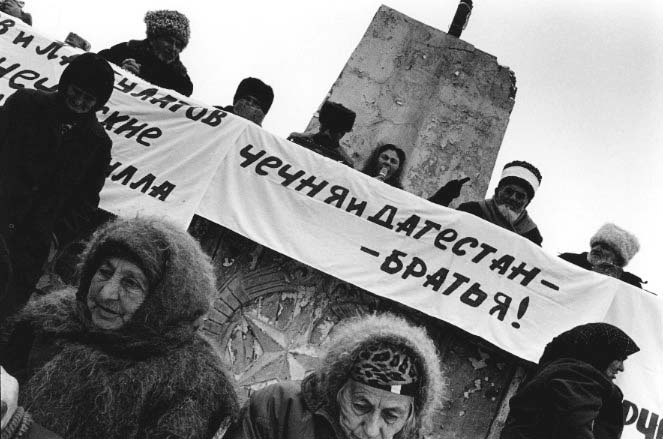
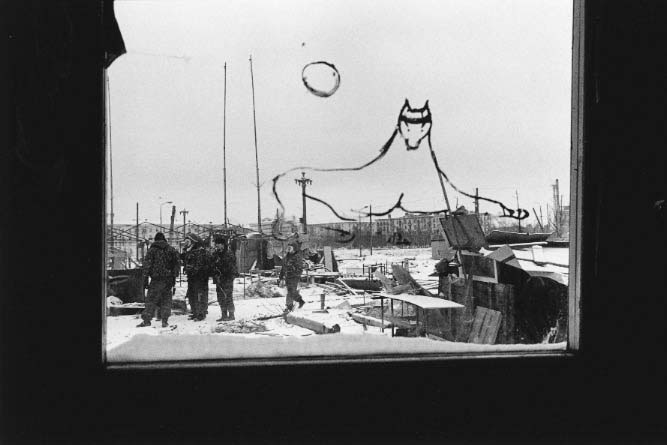
Meanwhile, the Chechen countryside is being littered with Russian bombs as soldiers try to flush out the rebels while bringing destruction and death to local inhabitants. Russian Channel 1 television news, a Yeltsin mouthpiece seen throughout the former Soviet Union, continues to reassure the public that everything is going well and the conflict will be over soon. But the Russian president continues to be plagued by this unpopular war that he thought would end quickly. Now people wonder why he doesn’t pull out. According to one resident, who is rebuilding a mosque in the center of Grozny, “Russians need an enemy to exist.”
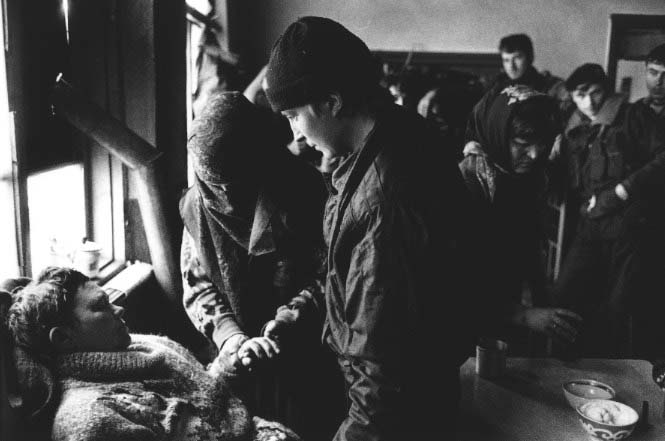
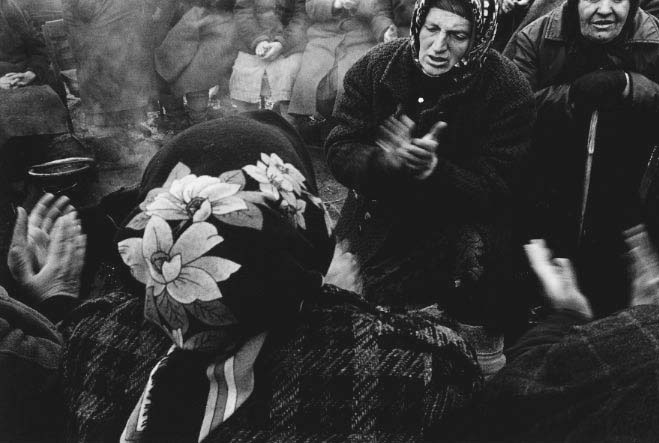
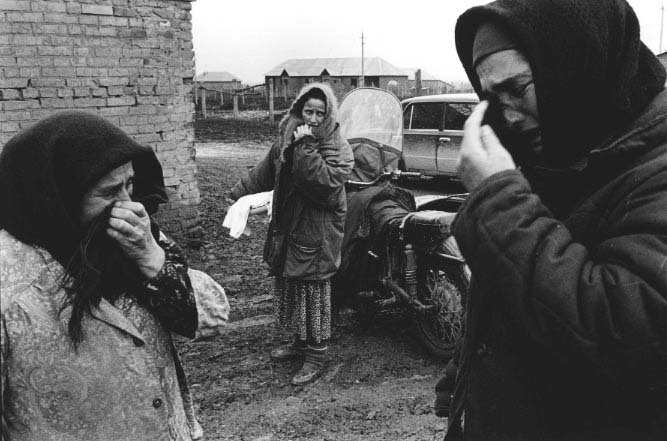
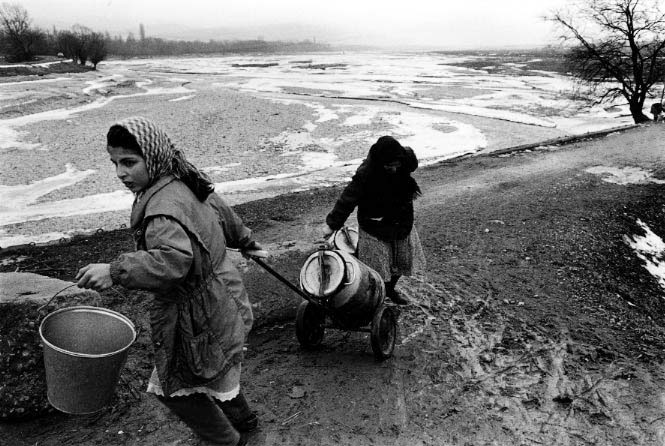
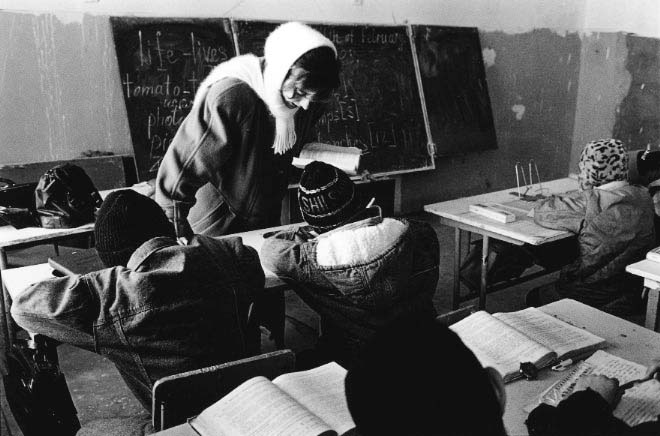
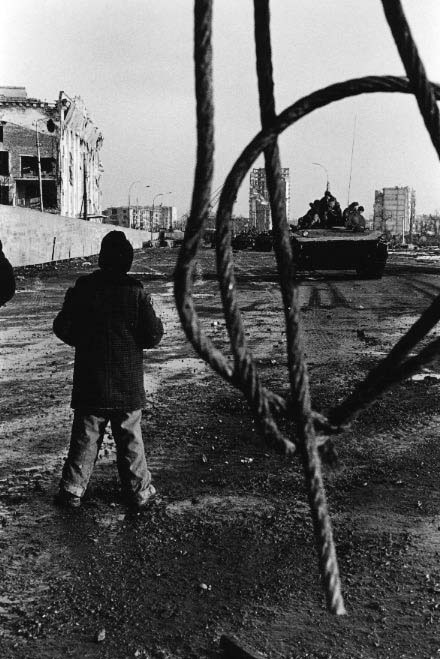
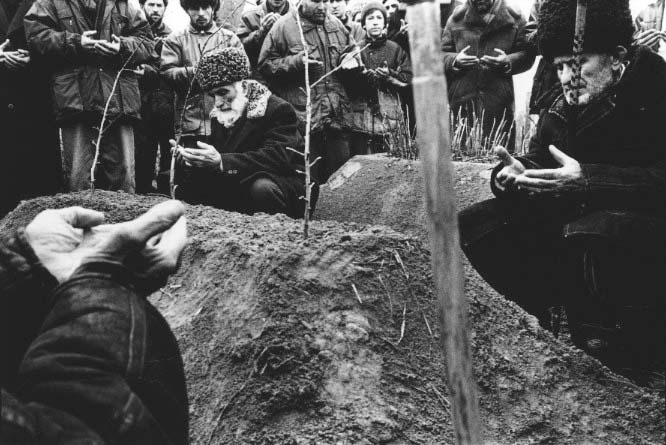
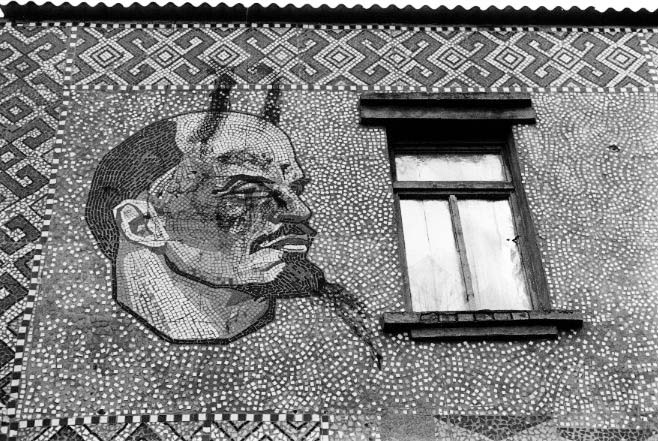
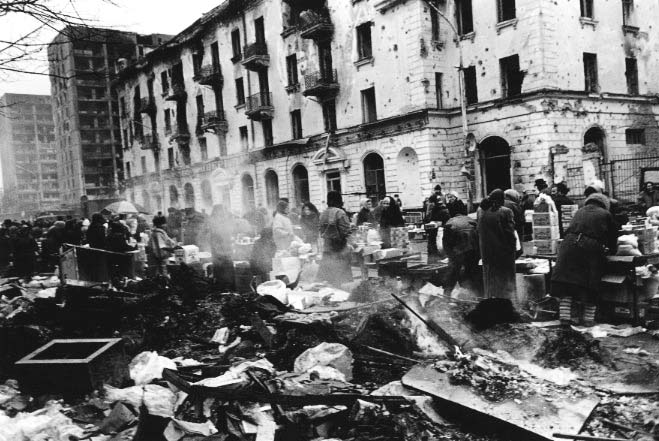
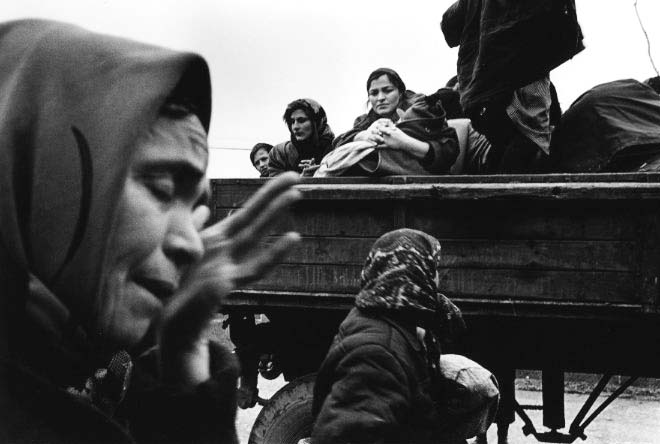
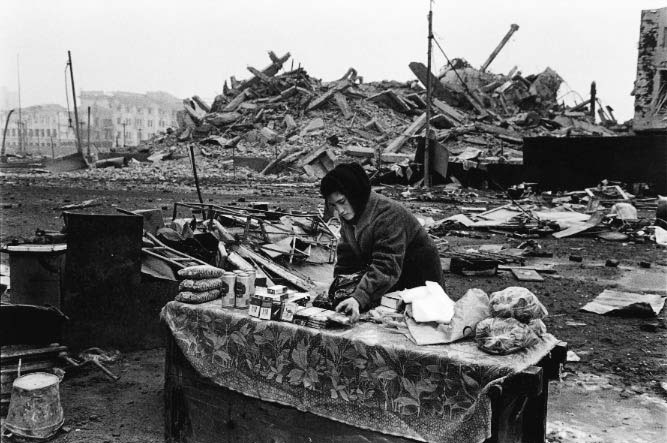
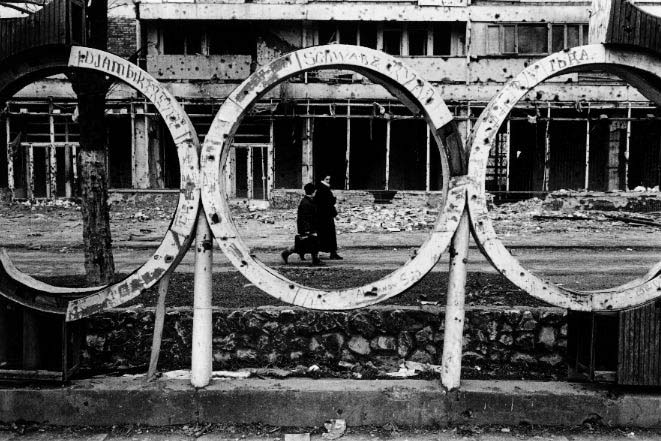
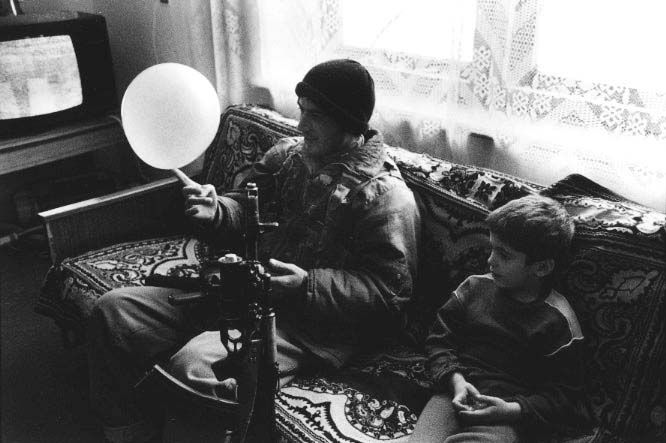
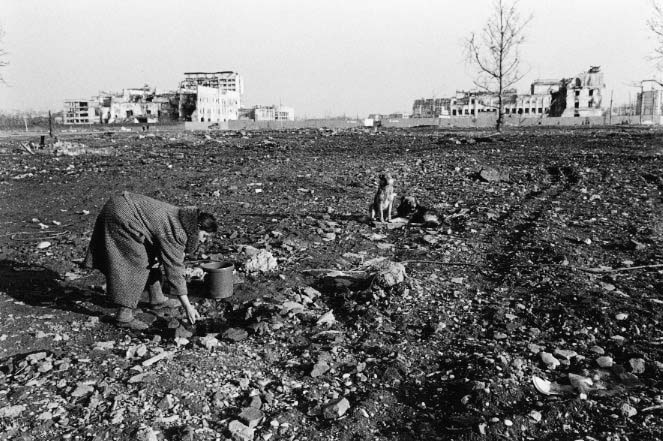
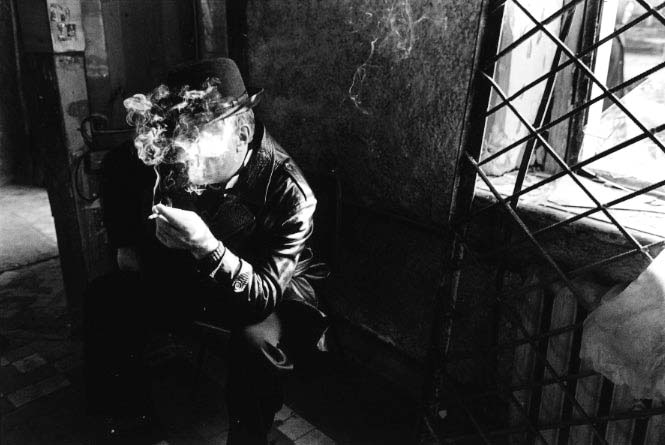
©1996 Jason Eskenazi
Jason Eskenazi, a freelance photographer based in New York City, has been living in Russia for most of the past five years. During his Patterson year, he is photographing the effects of the break-up of the Soviet Union.

